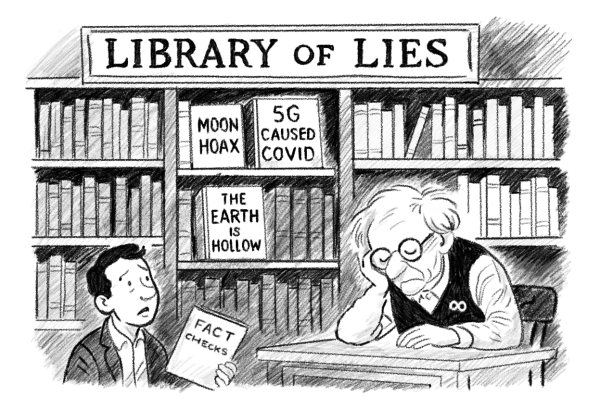Editorial: ‘Am I Flag-Worthy?’
If anyone has entered the Pagoda recently, they may have noticed rows of college flags hanging down two feet above their heads. The most historic, rich building on our campus has been debased by symbols that loom above us, representative of our inevitable path to try and enroll in top universities. While preparation for our futures is in no way superfluous, these flags are far more than just collegiate merchandise; they directly symbolize how Ransom Everglades has strayed from its purpose of embodying Paul Ransom’s third type of person by overly pressuring students to prepare for their futures at the expense of their present.
From academics to activities to assemblies, RE places a strong emphasis on the college process, immediately beginning in freshman year. The school previously required freshmen to take the PSAT, and still the sophomores do, implying the necessity for students to concentrate on standardized testing and the college process at a young age.
The subjects of long advisories and several grade-wide assemblies consist of lectures on college and its daunting process, which at the end of the day, simply feel like too much. Students of Ransom Everglades have access to some of the best college counselors with whom they may meet regularly beginning in the spring of their junior year; additional assemblies, lectures, discussions, and even peer conversations about college readiness are overkill.
While the school made some changes to alleviate stress — like switching to a semester system, removing midterms and finals, and creating a point system that allows for some flexibility — these efforts have been outweighed by the presence of college.
This presence isn’t just there for upperclassmen, it’s spread across the school through discussions, announcements during weekly and academic award assemblies, and the emphasis on grades students feel from a young age.
If an underclassman would like to find out more about the college process to alleviate this presence, speaking to a college counselor can be intimidating. From not having a direct contact in the department, to the description box on the College Counseling myCOMPASS page, which makes them seem unavailable to underclassmen, it is easy to see how the college process can be blurry.
Certain classes and exams are also indicative of an overly traditional system where quality depends on college admissions results. RE students attend one of the finest institutions across the country, whose test scores already exceed the national average. AP classes at our school are highly recommended as they are seen as labels for a college application, as opposed to opportunities to learn life lessons. Often, after lengthy discussions with advisors and counselors, students are compelled to take these courses in lieu of pursuing their true passions.
Since when did a good GPA outweigh the need to take classes in pursuit of academic curiosity?
Senior English classes are a step in the right direction. They give seniors the ability to explore genres of literature that excite them. Opportunities like these, however, should not be limited to just seniors; course selection for all four grades should be more accepting and flexible.
As students approach senior year, they are met with an increasing number of responsibilities that are imperative and always seem to creep their way into daily life. When addressing students from all four years, counselors and teachers alike drill the importance of certain activities and classes for college resumes. Most notably, however, is the conversion of our beloved Pagoda into a college barrage.
What was once a building of rich history that predates any person on campus, has now become headquarters for college counseling, where college flags serve as a constant reminder for what awaits. Rows upon rows of flags bearing university logos pierce the eyes of the dozens of seniors as well as underclassmen that enter the pagoda each day, almost as if the future is staring them in the face.
It sends a clear message to the student body about what’s valued on our campus: that students are working to end up at a college worthy of a flag.
College is obviously an important aspect of life; however, this emphasis should not be taken to extremes. High school should not be treated as a means to an end. Rather, it should be an opportunity to seek and employ new knowledge in the present. A class taken should not be taken solely for a grade, nor should an activity be performed for a resume.
It is because of Ransom Everglades’ unmatched education and unparalleled faculty and staff that our school has the ability to implement a number of unique and innovative courses that stray from the traditional college path. Classes and activities should be genuine opportunities to mold students into better individuals who can use these skills to help others. Year after year, we are reminded of the 3rd type of person Paul Ransom wanted us to be — it is almost as if we have forgone these values and instead mirrored the definition of a college preparatory school, one that seeks to produce people who desire material success over genuinely good people.
Preparing for the future is absolutely necessary and is almost always beneficial; however, the line is crossed when these tasks begin to engulf the “now” of student lives.
Alexander Abinader, Viviana Freyer, Nathalie Han, Miles Schachner, Holly Steinberg, eds.





